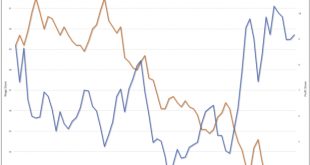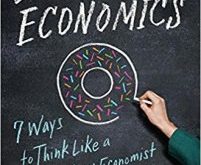from Dean Baker Wars always have unpredictable outcomes. It is unlikely that George W. Bush anticipated that the Iraq war would destabilize the Middle East for two decades, and possibly quite a bit longer. World War I resulted in the collapse of four European empires and emergence of the Soviet Union as a world power. In this vein, we can hope that something positive may emerge from Donald Trump’s ill-conceived trade war. Specifically, it may lead the United States and the world to...
Read More »The Permanent Income Hypothesis
from Lars Syll Milton Friedman’s Permanent Income Hypothesis (PIH) says that people’s consumption is not affected by short-term fluctuations in incomes since people only spend more money when they think that their lifetime incomes change. Believing Friedman is right, mainstream economists have for decades argued that Keynesian fiscal policies, therefore, are ineffectual. As shown over and over again for the last three decades, empirical facts totally disconfirm Friedman’s hypothesis. The...
Read More »Class struggle according to liberals
from David Ruccio Liberals like to talk about all kinds of social ills and identity-laden tensions—but not class struggle. That’s their persistent and enduring blindspot. Except, it seems, when it comes to Donald Trump. Thomas B. Edsall is a good example. Over the years, he’s produced a series of solid, insightful surveys of liberal research and analysis on a wide variety of economic and political topics. But he hasn’t written much if anything about class—until his latest, titled “The...
Read More »Economics in Two Lessons, Chapter 12
Thanks to everyone who commented on the first eleven chapters of my book-in-progress, <em>Economics in Two Lessons</em>. Here’s a draft of <a href=”https://www.dropbox.com/s/seojgihd4mrkcrq/QuigginChapter%2012Draft.pdf?dl=0″>Chapter 12 on Predistribution</a> Comments, criticism and praise are welcome. <!–more–> Earlier draft chapters are available. These aren’t final versions, as I am now editing the entire manuscript, but you can read them to see where the...
Read More »Open thread June 15, 2018
Economics for the 21st century
from Lars Syll 1. Change the goal: from GDP growth to the Doughnut. For over half a century, economists have fixated on GDP as the first measure of economic progress, but GDP is a false goal waiting to be ousted. The 21st century calls for a far more ambitious and global economic goal: meeting the needs of all within the means of the planet. Draw that goal on the page and – odd though it sounds – it comes out looking like a doughnut … 2. See the big picture: from self-contained market to...
Read More »Open thread June 12, 2018
Sandpit
A new sandpit for long side discussions, conspiracy theories, idees fixes and so on. Like this:Like Loading...
Read More »Utopia and technology
from David Ruccio Forget Bitcoin. It’s the underlying technology, blockchain, that is generating the most excitement. Even utopia! Bitcoin is a digital currency that was invented in 2009 by a person (or group) who called himself Satoshi Nakamoto. His stated goal was to create “a new electronic cash system” that was “completely decentralized with no server or central authority.” After cultivating the concept and technology, in 2011, Nakamoto turned over the source code and domains to...
Read More »Sanction Trump not Bourbon
This post “America’s allies should respond to steel tariffs with targeted sanctions on the Trump Organization” by Matthew Yglesias is brilliant (even though he is mainly agreeing with the prior brilliant article by Scott Gilmore “Trade sanctions against America won’t work. Sanctioning Trump himself might.” The proposal is so brilliant and the case for it so clear, that, I think, each title is enough to convey the idea. Yglesias elaborates while quoting...
Read More » Heterodox
Heterodox




